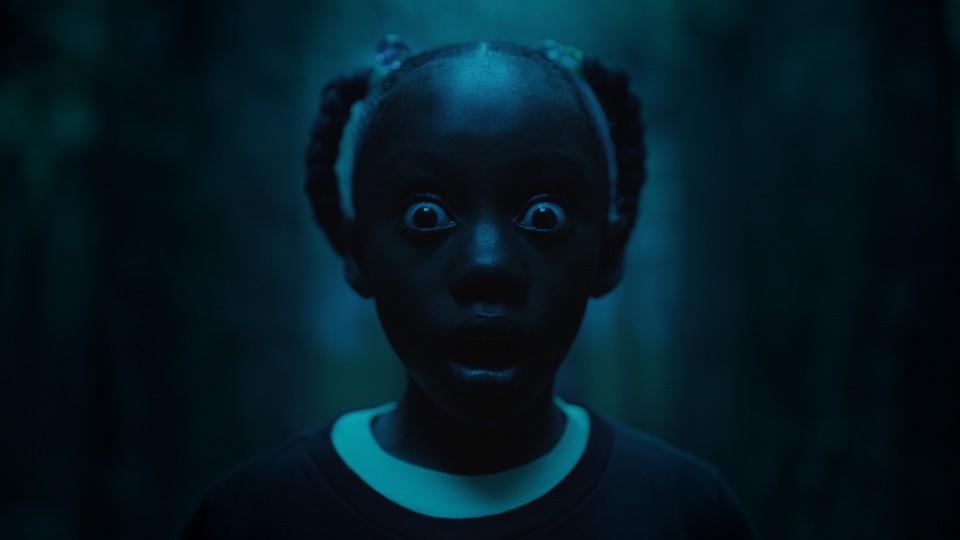<em>Us </em>and Jordan Peele’s New Horror

This story contains mild spoilers for the film Us.
It’s perhaps the most indelible image in cinema: Janet Leigh’s scream, her open mouth signaling unmistakable terror, in Alfred Hitchcock’s Psycho. Taken from the movie’s famous shower scene, the shot is now virtually synonymous with the horror genre. Other elements establish the gravitas of Hitchcock’s crown-jewel sequence—the shocking and graphic death early in the film, the reveal of Norman Bates’s slashing, the implied nudity and risqué setup in the running shower—but they are best crystallized in that one, almost audible still.
In his recent run as a bona fide heir to Hitchcock, the comedian and filmmaker Jordan Peele has given the world a potential successor to Leigh’s scream: a black face, skin humidified and reflective, two bulging and bloodshot eyes, and the streaks of two tears. The face belongs to Daniel, and lives on in Lupita Nyong’o’s performance in the director’s new movie, . That silent expression of fear is now a trademark of Peele’s, and a visceral reminder of what he adds to the game. The very act of incorporating black actors and black creators turns horror inside out, giving the genre new dimensions and new power as social commentary.
You’re reading a preview, subscribe to read more.
Start your free 30 days